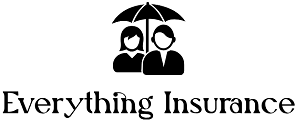As an entrepreneur who has poured their heart and soul into developing the business, safeguarding your business from unforeseen circumstances is a necessity. After carefully crafting your product or service, and identifying your target market, now you’re ready to take the world by storm, what happens when unforeseen circumstances threaten to disrupt the plan? That’s why business insurance for entrepreneurs comes in.
While passion and dedication are essential ingredients for entrepreneurial success, safeguarding your business with a proper insurance plan is also important. That’s why this article aims to provide insight into the major types of insurance options for entrepreneurs.
Why is Business Insurance Important for Entrepreneurs?
Running a business comes with loads of uncertainties which may incur financial losses for the business owner. Assuming a customer trips and falls on your store’s wet floor, sustaining an injury. Or perhaps a data breach exposes sensitive client information. Without proper insurance coverage, these situations could result in hefty lawsuits and financial losses, and may even force you to shut down your operations.
Business insurance acts as a layer of protection to mitigate financial risks and provide peace of mind for business owners. It allows you to focus on growing your business without the constant worry of unforeseen events derailing your progress.
Essential Business Insurance for Entrepreneurs
Now, let’s analyze the different types of business insurance for entrepreneurs that form the foundation of a strong risk management strategy:
1. General Liability Insurance (GLI)
GLI protects your company from third-party claims such as bodily injury, property damage, and even some forms of advertising injury such as libel or slander. Making GLI the foundation of your business insurance portfolio could be a good option.
Common Coverage Scenarios:
- A customer slips and falls on your store’s stairs, sustaining a broken arm.
- A product you sell malfunctions, causing damage to a customer’s property.
- An unsatisfied client sues you for false advertising claims.
GLI safeguards your business assets by covering legal defense costs, settlements, and judgments arising from such incidents.
Tailoring Your GLI Coverage:
As your business evolves, consider additional coverages under your GLI policy, such as:
- Products & Completed Operations: Protects against claims arising from products you sell or services you render, even after the sale or completion of the service.
- Broadened Property Damage: Covers property damage you don’t own, but are responsible for (e.g., rented equipment).
2. Commercial Property Insurance
This policy safeguards your physical business assets, including your building, equipment, furniture, and inventory, against damage caused by perils like fire, theft, vandalism, and weather events.
Coverage Options:
- Building Coverage: Protects the structure of your business premises.
- Business Personal Property Coverage: Covers furniture, equipment, inventory, and other business-related contents.
- Loss of Business Income Coverage: Provides financial compensation if your business is forced to close due to a covered peril, helping you cover ongoing expenses like rent and payroll.
Tailoring Your Commercial Property Coverage:
The specific needs of your business will determine the type and amount of coverage you require. Businesses with expensive equipment or specialized inventory may need additional coverage options.
3. Business Owners Policy (BOP)
For many small businesses, a Business Owners Policy (BOP) offers a convenient and cost-effective way to obtain essential coverage. A BOP typically combines general liability and commercial property insurance into a single policy, often at a discounted rate compared to purchasing them separately.
Benefits of a BOP:
- Simplified Coverage: Streamlines the insurance process by bundling essential coverages.
- Cost-Effectiveness: Often provides a more affordable option for basic business insurance needs.
- Convenience: It is easier to manage your insurance needs with a single policy and point of contact.
Limitations of BOP:
While a BOP is a great starting point, it is not a one-size-fits-all for all businesses. Businesses with high-risk operations, specialized equipment, or large inventory may require more comprehensive coverage beyond what a BOP typically offers.
4. Workers’ Compensation Insurance For Businesses With Employees
If you have employees, workers’ compensation insurance is a necessity and it’s required in most states. This policy protects your company from financial liability if an employee is injured or becomes ill on the job.
Coverage Provided:
- Medical Expenses: It provides the cost of medical treatment for work-related injuries or illnesses.
- Lost Wages: This covers a portion of an employee’s regular salary while they are unable to work due to an injury or illness sustained at work.
- Disability Benefits: It provides benefits to employees who suffer permanent disabilities as a result of an accident sustained at work.
Ensure a Safe Work Environment
Workers’ compensation insurance protects your business financially and encourages a safe work environment, but that’s not enough. Go the extra mile in protecting your business by establishing necessary safety measures and promoting a habit of safety. The following practices will help you protect your business:
- Develop and Enforce Safety Policies: Establish standard safety practices that promote a safe work environment for all employees. In addition, conduct regular training sessions to ensure everyone understands these procedures and their importance.
- Employ Workplace Safety Equipment: Provide employees with the necessary personal protective equipment (PPE) when necessary. This often includes gloves, goggles, respirators, or safety footwear, depending on the nature of the job.
- Maintain a Safe Working Environment: Conduct regular inspections in the workplace for potential hazards like electrical wiring issues, messy walkways, or malfunctioning equipment. Most importantly, address these hazards promptly to prevent accidents.
- Encourage Open Communication: Encourage a work environment where employees feel comfortable reporting any safety concerns. This will allow you to identify and address these problems before they cause accidents.
- Offer Safety Incentives: Introduce incentive programs to reward employees for following the safety procedures and reporting unsafe conditions. This will encourage other staff to comply with the safety measures outlined.
Build a Culture of Safety
While employing workers’ compensation insurance as part of your business insurance for entrepreneurs is necessary, it is not enough to completely protect your business against unforeseen occurrences. You need to go the extra mile to build a strong safety habit among your employees. Encourage them to embrace workplace safety and prioritize their well-being. This will save you from avoidable situations and also promote a healthy and productive working environment.
Conclusion
Lastly, it is a primary requirement for an entrepreneur to protect their business in every aspect, and employing an insurance plan for entrepreneurs is a major way to achieve this. Meanwhile, understanding the different types of business insurance available and how to implement them to minimize your risks is necessary. Nevertheless, you must ensure workplace safety to provide an additional layer of protection for your business.





